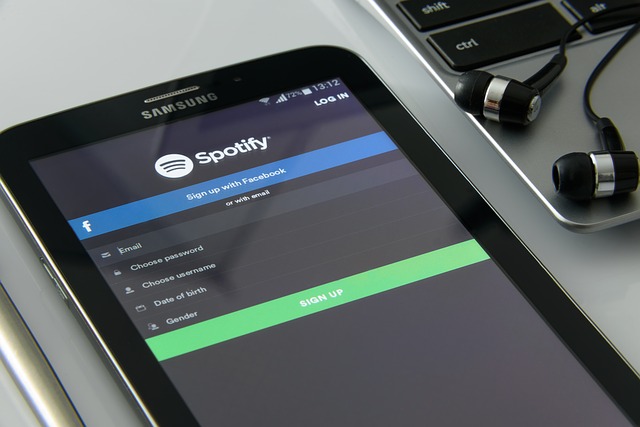Will Spotify Ever Generate Profits?

According to a report by Statista, the global music streaming market is expected to grow from $11.44 billion in 2018 to $14.79 billion in 2022 at a CAGR of 6.6%. User penetration was at 24.7% in 2018 and is expected to grow to 26.6% by 2022. Earlier this month, streaming music service provider Spotify went public. Here is a quick look at the Billion Dollar Unicorn player’s performance so far.
Spotify’s Financials
Sweden-based Spotify was founded by serial entrepreneur Daniel Ek and Martin Lorentzon. Its service was launched in 2008 when global music industry revenues were declining due to growth in piracy and digital distribution. While listeners were still listening to music, the artists needed a better way to monetize their music and consumers needed a legal and simpler way to listen. Spotify was set up on the belief that streaming music was beneficial to both artists and music fans.
Spotify operates on a freemium model allowing access to an ad-supported streaming radio service. Customers can also select a paid subscription that grants them unlimited online and offline, high-quality, ad-free streaming access to its catalog. Membership fee is $9.99 a month. Spotify is present in 61 countries and territories. It has a monthly active user base of more than 159 million subscribers, which grew 29% over the year. Its Premium Subscribers have grown 46% over the year to 71 million. Spotify claims that its premium subscriber base is nearly double that of the Apple Music subscriber base. Spotify accounts for the largest global streaming market share by revenues. It accounted for 42% share in 2016, and had 41%, 42%, and 59% in the US, Brazil, and United Kingdom markets, respectively.
Spotify has seen strong revenue growth over the past years. For the years ended December 31, revenues have grown from €1.94 billion (~$2.38 billion) in 2015 to €2.952 billion (~$3.62 billion) in 2016 to €4.09 billion (~$5.02 billion) in 2017. During the same period, net losses grew from €230 million (~$282.39 million) in 2015 to €539 million (~$661.78 million) in 2016 to €1.235 billion (~ $1.52 billion) in 2017.
Till earlier this month, Spotify was venture funded with $2.71 billion in investments from Asset Management Partners, Baillie Gifford, D.E. Shaw & Co., Discovery Capital, Goldman Sachs, GSV Capital, Halcyon Asset Management, Lansdowne Partners, Northzone, Rinkelberg Capital, Senvest Capital, Technology Crossover Ventures, TeliaSonera, Alexandre Mars, AFSquare, Fidelity Ventures, Lakestar, The Coca-Cola Company, 137 Ventures, Accel Partners, DST Global, Kleiner Perkins Caufield & Byers, Founders Fund, Sean Parker, Horizons Ventures, and Li Ka-shing.
Last week, Spotify went public and began trading on the NYSE under the ticker SPOT. Unlike traditional IPOs, Spotify had followed the direct listing method that allowed it to trade its shares publicly without underwriting pressures, lock-in periods, and listing prices. As part of the process, Spotify had hired Citadel Securities as a market maker to set the opening price on the NYSE, with help from Morgan Stanley. The reference price for the stock was determined at $132, valuing the company at $26.5 billion. That is a significant increase over the $8 billion valuation in March 2016. Spotify did not execute a traditional listing, and its listing method helped it save on IPO expenses. According to analysts, it paid nearly a quarter of what it would have had to pay if it had done the traditional way. But while this may be a cheaper option, the market does not think that many companies will go down this path. Spotify’s strengths including a powerful brand, a global scale, rapid growth, positive free cash flow, and a dominant position in a large market with secular growth allowed it to go for that route. But that may not work out for many other players.
Questions for Spotify’s Board
Spotify’s valuation and user base may be rising, but that is not spelling an end to its losses. Since inception, the company has amassed an accumulated deficit of €2.43 billion (~$2.98 billion). Its losses have been attributed to the significant costs to license content and royalties to music labels, publishers, and other copyright owners. In fact, rival Pandora has yet to turn in a profit. Pandora’s valuation has fallen more than 60% since it went public, as it has failed to keep up with market expectations on revenue, subscriber growth, and profits.
Additionally, competition from tech giants with deeper pockets is heating up. Amazon Prime, Apple Music, and Google Play Music are all bigger brands trying to make their moves in the streaming industry. For these companies, music streaming is another line of business, and they can afford to run losses on the segment. Spotify may be a leader right now, but it will take a lot for it to compete against the financials and the technology that these giants have access to.
How is Spotify planning to address these concerns? How will it compete? And how will the company finally turn profitable?
For now, the stock is trading at $150 with a market capitalization of $27.5 billion. It had touched a high of $169 soon after listing. I am not convinced that this is a good company to invest in.
(Click on image to enlarge)
Sramana Mitra is the founder of One Million by One Million (1M/1M), a global virtual incubator that aims to help one million entrepreneurs ...
more


